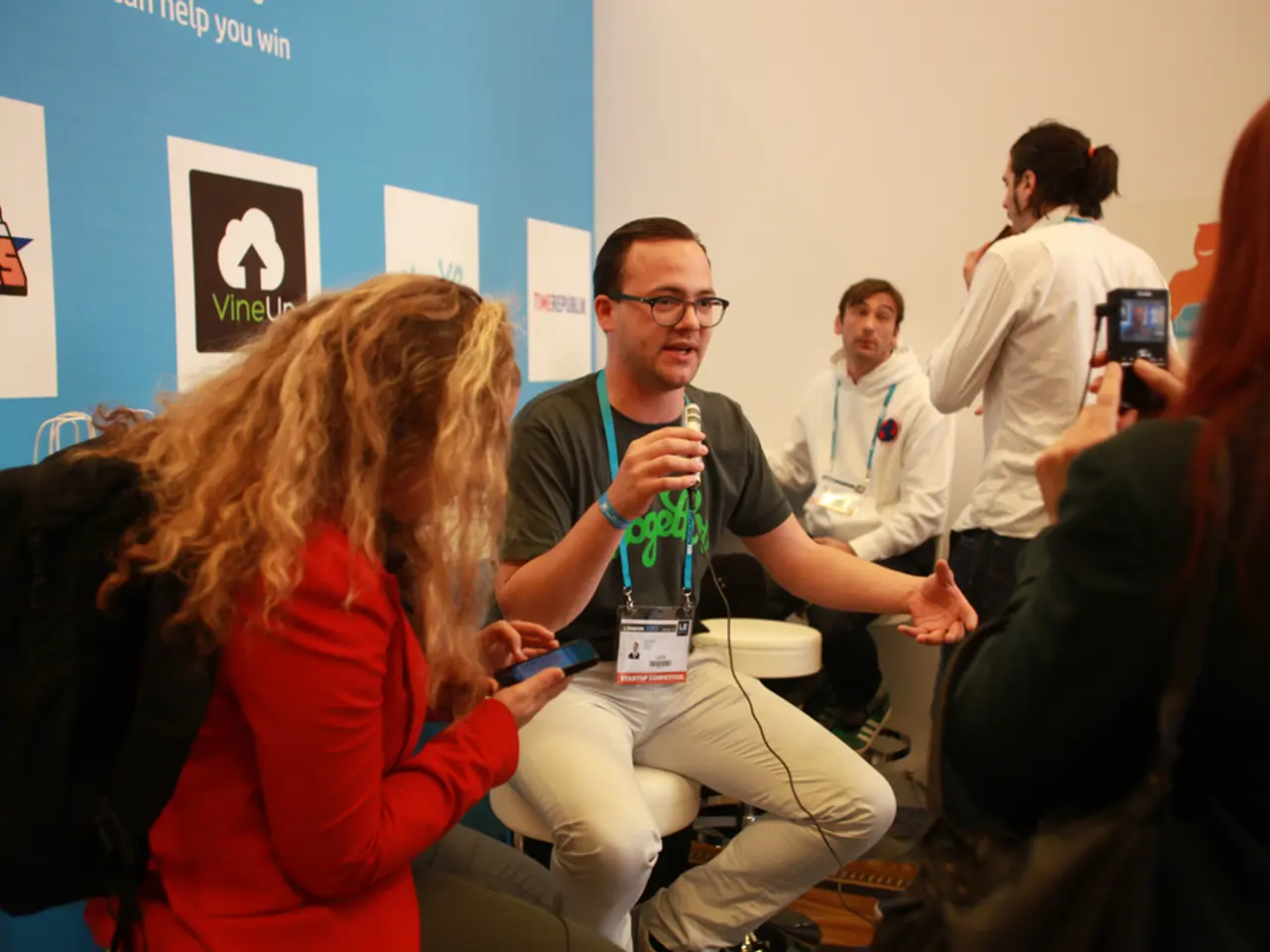Scientists unveil the optimal interview scheduling time for securing your dream job
In a groundbreaking study, researchers at the University of Bologna and the University of Messina in Sicily have discovered that the optimal time for job interviews is mid-morning to around noon. This finding, which aligns with previous studies, suggests that interviews scheduled between 11:00 a.m. and 1:00 p.m. can significantly increase the chances of success for both candidates and interviewers.
The reasons behind this midday advantage are thought to involve biological rhythms. According to Professor Alessio Avenanti of the University of Bologna, a co-author of the study, the findings have wide-ranging implications, particularly in the highly competitive UK job market where an average of 48.7 people apply for each job.
Researchers studied over 100,000 oral exams at Italian universities and identified a specific two-hour window, midday (11am-1pm), as the ideal time for job interviews. They found that assessment outcomes peak around lunchtime, implying better mental performance late morning compared to early morning or late afternoon. Around 9–11 a.m., interviewers and candidates are settled in and focused but not yet fatigued by the day, avoiding the early morning grogginess and post-lunch slump.
To improve your chances of success in a UK job interview, it is essential to prepare thoroughly and stand out. This includes researching the company, understanding the role by reviewing the job description, and aligning your skills and experience with the job requirements. Anticipate common interview questions such as "Why do you want this job?" and "Why are you leaving your current role?" and practice responses to build clarity and confidence during the interview.
Communication plays a crucial role in making a strong impression. Actively listen to the interviewer to ensure answers are relevant and show genuine engagement. Use the interviewer's name during the conversation to help build rapport and create a more personal connection. Maintain good body language with confident posture and consistent eye contact.
In addition to timing, there are several strategies to boost interview success. Submit your job application promptly, ideally within the first 72 hours of the job posting going live and preferably during mid-morning (9–11 a.m.) for more recruiter visibility. Use the 24 hours before the interview for final preparations and relaxation to reduce anxiety and reinforce confidence.
For virtual interviews, ensure a reliable internet connection, good lighting, and a quiet professional environment. Test audio/visual equipment beforehand and follow clear instructions from the interviewer to avoid technical issues. Engage effectively during the interview by maintaining eye contact, listening carefully, and demonstrating genuine enthusiasm and attentiveness to create a positive impression.
Manage expectations and follow up by understanding typical timelines (20–40 days between interview and job offers) to reduce anxiety. Send thank-you notes to reinforce interest and professionalism. Dress appropriately in smart business attire if unsure of the dress code and avoid asking about salary or benefits during the initial interview.
In summary, scheduling interviews late morning to around noon leverages natural peaks in cognitive performance for both parties, improving outcomes. Candidates can further improve chances by timely applications, thorough preparation, professional conduct, and strategic timing aligned with these findings. Practice is also key to building confidence for the interview.
- In the realm of education and self-development, understanding the importance of optimal interview times can significantly enhance one's career development, particularly in competitive markets like the UK.
- The science behind these findings suggest that, akin to health and wellness, our biological rhythms play a crucial role in mental health and productivity during job interviews, with midday maintaining an edge over other times.
- Beyond just timing, fitness and exercise can play a role in the interview process. Preparing thoroughly for interviews, much like investing in one's education and self-development, increases the chances of success, allowing candidates to perform at their best.




